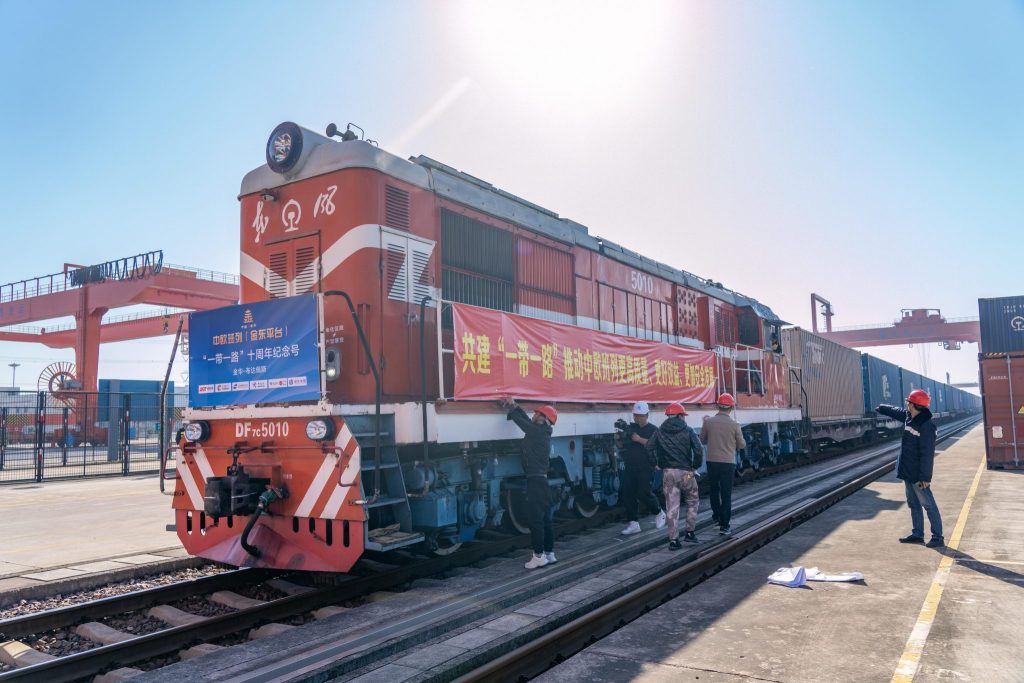At the 76th United Nations (UN) General Assembly in September 2021, China unveiled its Global Development Initiative (GDI). The GDI aims to enhance international attention on global development and speed up implementation of the 2030 Agenda for Sustainable Development.
Since its inauguration, more than 100 countries and international organisations, including the UN, have endorsed this new initiative. As part of the GDI, the Chinese Government has established a special agency, an earmarked fund of US$4 billion and a library of global development projects. Beijing has also mobilised US$12 billion from domestic and international financial institutions. As of August 2023, more than 200 ‘small and beautiful’ projects have been carried out.
The GDI promises a fresh perspective on global development, especially for Asia, and its principles and aspirations are encouraging. Yet a true measure of the GDI’s effectiveness will lie in its practical elements. This includes its capacity to align China with partner nations without overshadowing them and its adaptability within the broader geopolitical landscape.
Central to the GDI is the blend of shared and sustainable development. The former emphasises people-centricity and inclusiveness, while the latter values innovation and harmony with nature. This dual focus on a people-centric approach, coupled with a robust commitment to environmental stewardship, presents a forward-thinking vision. But operational challenges are inevitable. The task of ensuring fairness and inclusiveness, while also responding to global goals and challenges, will be pivotal for the initiative’s success.
The role Beijing envisions for itself within the GDI is another determinant of the initiative’s efficacy. China, as the initiator of the GDI, plays a pivotal role in guiding and driving its implementation on a global scale. In doing so, China must shoulder its responsibilities while also assessing its own capabilities realistically. Balancing these factors underscores the central role of cooperation partners. Beijing must be sensitive to the unique needs and visions of its partner countries. Focusing on cooperation that aligns the new initiative with the local needs of recipient countries and promoting self-reliance will make the GDI more effective.
In the broader developmental arena, the GDI’s interplay with other significant frameworks, such as the Belt and Road Initiative (BRI), the Build Back Better World initiative, the Clean Green Initiative, the Global Gateway and Blue Dot Network, will influence its trajectory. China could navigate the interplay between its GDI and BRI initiatives by employing a strategic combination of ‘hard connectivity’ in infrastructure development and ‘soft connectivity’ in rules and standards.
With global development efforts being multifaceted, the GDI’s agility to harmonise with other players and projects is vital. This involves leveraging key BRI projects with GDI principles to foster information-sharing among various development initiatives. China should engage in information sharing and mutually beneficial cooperation with Western nations to capitalise on their respective strengths and jointly address the needs of developing countries. In doing so, trust could also be built up in the development field, which is just as important as financial assistance and technological transfers.
For the GDI to succeed, it may also need a strong domestic and regional accountability system. Globally, China could emphasise a synergy with the 2030 Sustainable Development Agenda and other UN development initiatives to ensure alignment in topic selection, project collaborations as well as monitoring and evaluation.
Regionally, the GDI’s implementation mechanisms could draw on Lancang–Mekong Cooperation, the China–ASEAN partnership, the Forum on China–Africa Cooperation and the Shanghai Cooperation Organisation. It is an open question whether recipient countries could learn from China’s experience in implementing prioritised development agendas. It would be interesting to monitor how Chinese lessons could be adapted and applied externally to various contexts within the GDI framework.
The GDI’s multi-stakeholder engagement strategy, which embraces diverse partnerships from governments to academia, is ambitious. While the breadth of this outreach is commendable, deeper inquiries into the authenticity and long-term objectives of these collaborations are necessary. Given ongoing geopolitical tensions, a multi-stakeholder approach could reduce political sensitivities and harness the enthusiasm of think tanks, universities, businesses, civil societies and international organisations.
Considering its dynamic economy, Asia could be a pilot region for GDI and global cooperation. Both China and the United States have sought to increase investment in this region. But the two superpowers still lack joint actions for development cooperation. The strategy of selectively partnering with nations based on their developmental potential might also trigger concerns about the initiative’s approach to resource distribution.
The global pursuit of sustainable development faces unprecedented challenges. The GDI has emerged as a captivating blueprint for reimagining global development, particularly in Asia. China has made concerted efforts to engage as many countries as possible. This has contributed to a shift towards a more balanced, coordinated, inclusive and greener approach to development. As the world looks on, the GDI’s successes and challenges will reveal themselves through its operational strategies and dexterity in navigating a complex geopolitical environment.
Sen Gong is Professor at the School of Public Affairs and Director of the Centre for International Studies on Development and Governance, Zhejiang University.

